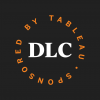Five Ways Data Cultures Have Grown During COVID

It’s been more than a year since the COVID pandemic began which has significantly changed so many of our lives. And yet The Economist reports, the average happiness score across 95 countries has crept up over 2020, not down. We’ve all experienced some silver linings throughout the pandemic, and one that we’ve seen firsthand is an acceleration of organization's commitment to building a data culture. We asked 5 data leaders what changes they have seen in their organization's attitudes towards data, and the feedback was encouraging.
A Higher Premium on Credible Data
“I think people's comfort level with looking at data and the willingness to have discussions about data has gone significantly up. Look at your friends’ social media accounts - they’re posting about vaccine efficacy rates, citing CDC studies, websites and dashboards. I think that COVID has elevated the data conversation, which does inform people's desire and comfort levels to look at, use, and consume data sets in ways that a business intelligence team might create. And I hope that the hunger and desire to want to be informed lasts so they can make informed decisions about questions like, ”Do I re-open my office? What are state governments using to set guidelines?’”
– Heidi Lanford, Chief Data Officer, Fitch Ratings
A Transformed Urgency Around Sharing Data
“Integrated care systems around the world struggle to share data due to a combination of factors: data territorialism, legacy systems and the failure to think beyond episodic care . As a result, you end up with data siloes and limited insights.’’ When COVID struck, we realized that we had an opportunity to unify efforts with our data partners in ways we never had before. Clearly we didn’t want people creating their own pandemic data infrastructure, so we moved quickly to unify our efforts. We were able to create a National COVID Data Store, which houses upwards of 4,000 data sets in one centralized location and is hosted by the NHS. This would never have happened had COVID not appeared (sadly), because everyone had a tendency to be protectionist about their own territory and technology. Moving our data and analytics efforts into the 21st century will require much heart, conviction and a willingness to believe we can do better.”
– Suki Panesar, Deputy Director Strategy and Development, (Data And Analytics), Office of Chief Data and Analytics Officer, National Health Service (NHS)
An Improved Ability to Deploy Diagnostic Analytics
“In our sequencing business in April 2020, we could figure out in almost real time how certain countries or customers were being impacted based on the sequencing trends we were observing. We could see that based on the instrument telemetry data for those that were connected. That gave us a pretty good proxy to be able to say generally what was happening in the market. We also could start to see when it rebounded a little bit and put some different data science approaches to work to be able to anticipate what it could be in the future.”
– Nate Mayfield, Global Head, Commercial Data and Analytics, illumina
The Opportunity to Get More Creative with Recruiting
“Although there was no physical Tableau Conference in 2020, we could still create offers that gave candidates something back for sharing a bit of information about themselves. We set up a hashtag on Twitter called #jlldatafam that invited people to fill out an online form and give us a bit of information: their name, current company and role, level of certification in Tableau, and level of certification in Alteryx. This earned them a virtual badge using a tool called Credly. If they clicked on the pop-up to find out more, we asked them additional questions around role type, salary expectations, and a link to their Tableau Public profile. We collected details on 130 people from across the globe during a time when everyone was locked down. Now I've now got a dashboard I can use to bring interested people into a conversation already knowing their interest, skills and level of contribution.”
– Paul Chapman, Global Director of Performance Management, BI and Innovation, JLL
A Heightened Awareness of Data Ethics
“The importance of data ethics in all of its facets has stood out to me during COVID. When people started reporting on COVID, for instance, they were referring to what were essentially marks on a chart. But these are families, and the way that we talk about these data points, we need to infuse humanity in there. We need to understand the impact of our data, not just in its usage, but in its collection, and throughout its lifecycle for its intended and unintended consequences. There's no data scientist in the world, I don't think, that says, “I want to build an algorithm that discriminates against a certain population, and that creates systemic inequalities based off of my model.” Because most people think that data is objective, but the problem is, it’s not. Far from it.”
– Candra McRae, Lead Solution Engineer, Tableau







